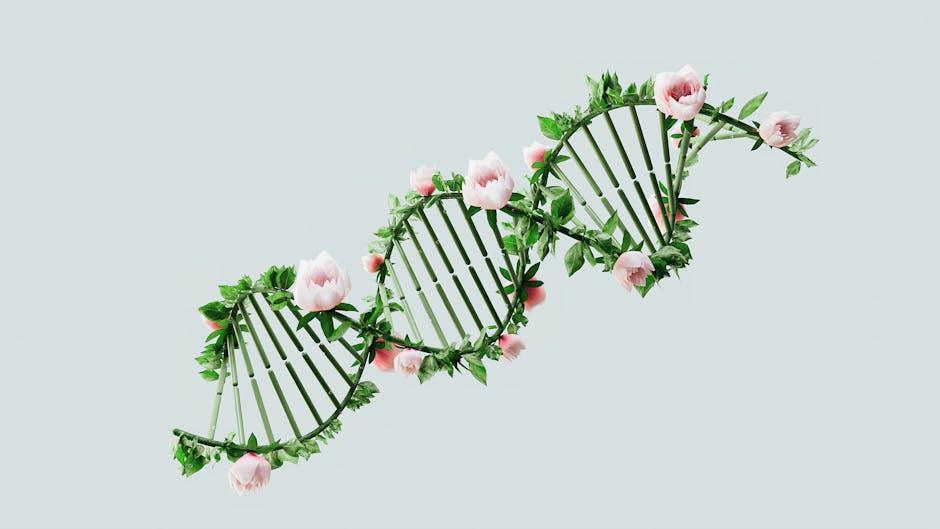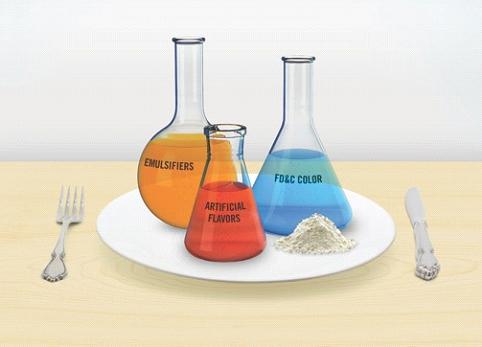In the kaleidoscope of modern life, where flavors burst and colors dazzle, artificial additives have quietly woven themselves into the fabric of our daily consumption. From the vibrant hues of a child’s birthday cake to the savory notes of a weeknight dinner, these synthetic compounds promise to enhance our culinary experiences. Yet, as their presence becomes ever more ubiquitous, a question simmers beneath the surface: what are the true effects of these additives on our health? In this exploration, we delve into the intricate dance between artificial enhancements and human well-being, navigating a landscape where innovation meets caution, and where every bite holds a story waiting to be told. Join us as we unravel the mysteries of artificial additives, balancing curiosity with scientific inquiry, to understand their role in the grand tapestry of nutrition and health.
Understanding Artificial Additives and Their Prevalence
In today’s world, artificial additives are ubiquitous in the food industry, appearing in a wide array of products to enhance flavor, texture, and shelf life. These substances, including preservatives, colorants, and flavor enhancers, are engineered to meet consumer demands for convenience and visual appeal. While their use is widespread, understanding their prevalence is crucial to making informed dietary choices.
- Preservatives: Designed to prevent spoilage, these additives extend the life of products on store shelves, ensuring that food remains safe for consumption over extended periods.
- Colorants: Often used to make food products visually appealing, these additives can influence consumer perception and desirability, making processed foods more enticing.
- Flavor Enhancers: These are used to boost or mimic natural flavors, often compensating for taste lost during processing, making foods more palatable.
The integration of these additives into everyday food items raises questions about their long-term impact on health, necessitating a closer examination of the ingredients listed on product labels. Through increased awareness, consumers can navigate the complex landscape of artificial additives with greater confidence.

The Science Behind Additives: What Studies Reveal
In recent years, scientific inquiry has delved deeply into the role of artificial additives in our diets, uncovering a complex web of interactions with human health. Studies have shown that certain additives, often used to enhance flavor, color, or shelf life, can have unintended consequences. For instance, artificial sweeteners such as aspartame and saccharin have been scrutinized for their potential links to metabolic disorders and changes in gut microbiota. Meanwhile, food colorings like tartrazine and sunset yellow have been associated with hyperactivity in children, prompting ongoing debates and regulatory reviews.
- Preservatives: Commonly used to extend the shelf life of food, some preservatives like sodium benzoate have been linked to allergic reactions and respiratory issues.
- Flavor Enhancers: Monosodium glutamate (MSG) is a well-known additive that, while deemed safe by many health organizations, continues to be a topic of controversy due to anecdotal reports of headaches and other symptoms.
- Stabilizers and Emulsifiers: These additives help maintain texture and consistency but may impact digestive health, particularly in individuals with sensitivities.
Research continues to evolve, and while not all additives are harmful, the growing body of evidence suggests that moderation and informed choices are key. As scientists and health professionals work to unravel these intricate relationships, it becomes crucial for consumers to stay informed and make decisions that align with their health priorities.

Health Implications: Navigating the Risks and Benefits
Artificial additives are a staple in modern food production, offering a variety of functions such as enhancing flavor, improving texture, and extending shelf life. However, their impact on health is a topic of ongoing debate. While these additives can provide certain benefits, they also come with potential risks that need careful consideration.
- Benefits:
- Preservation: Additives like preservatives help in keeping food fresh for longer periods, reducing waste.
- Enhanced Flavor: Flavor enhancers can make food more palatable, encouraging consumption of nutrient-rich but otherwise bland foods.
- Improved Texture: Emulsifiers and stabilizers ensure a consistent texture, making food products more appealing and enjoyable.
- Risks:
- Allergic Reactions: Some individuals may experience allergies or sensitivities to certain additives, leading to adverse health effects.
- Potential Toxins: Overconsumption of certain additives may introduce harmful toxins into the body over time.
- Dietary Impact: Reliance on artificially enhanced foods might lead to imbalanced nutrition, as they can overshadow the consumption of whole, unprocessed foods.
Balancing these risks and benefits is essential for making informed dietary choices. While artificial additives can provide conveniences and enhancements, understanding their potential health implications is crucial for maintaining overall well-being.

Guidelines for a Healthier Diet: Reducing Additive Intake
Incorporating healthier dietary habits often involves minimizing the consumption of artificial additives, which are commonly found in processed foods. Here are some practical tips to help reduce your intake of these substances:
- Read Labels Carefully: Familiarize yourself with common additives such as monosodium glutamate (MSG), high fructose corn syrup, and artificial colorings. Understanding what you’re consuming is the first step toward making healthier choices.
- Choose Whole Foods: Opt for fresh fruits, vegetables, whole grains, and lean proteins. These foods are typically free from additives and provide essential nutrients.
- Cook at Home: Preparing meals from scratch allows you to control what goes into your food, ensuring that your meals are free from unwanted additives.
- Limit Processed Foods: Foods such as canned soups, ready-to-eat meals, and snacks often contain a high number of additives. Reducing your consumption of these products can significantly decrease your additive intake.
- Explore Natural Alternatives: When cooking or baking, use natural flavor enhancers like herbs and spices instead of artificial flavors.
By making these small adjustments, you can effectively reduce your exposure to artificial additives and promote a healthier diet. These strategies not only enhance your overall well-being but also contribute to a more mindful approach to eating.
Concluding Remarks
As we close the chapter on our exploration of artificial additives and their intricate dance with human health, we find ourselves standing at a crossroads. This journey through the labyrinth of synthetic colors, flavors, and preservatives has illuminated both the marvels and the mysteries of modern food production. With every bite, we are reminded of the delicate balance between innovation and tradition, convenience and caution.
The story of artificial additives is far from finished, with new research continually reshaping our understanding and guiding our choices. As consumers, the power rests in our hands to navigate this complex landscape with curiosity and discernment. Whether embracing or eschewing these modern marvels, the path forward is one of informed decisions and mindful consumption.
Let us, therefore, remain vigilant explorers, open to the evolving narrative that science and society together will craft. In this unfolding tale, may we find not only answers but also a deeper connection to the foods we consume and the health we cherish. Until the next discovery, let us savor the knowledge gained and look forward to the flavors of the future with both wisdom and wonder.


































